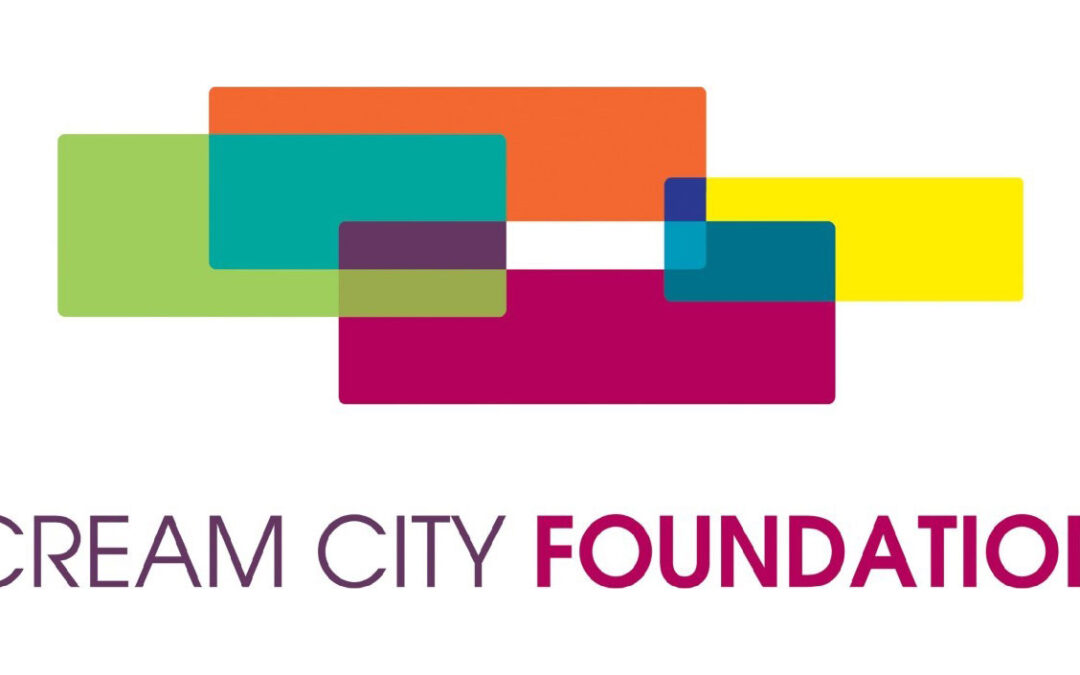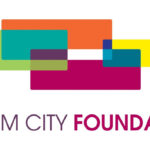Near the beginning of my conversation with the Reverend Peter Beeson (he/him), Peter shared an understanding from monks who were the “desert fathers in early Christian Church history, they were based in the Cappadocian Region of Turkey, and they talked about the womb of the father. As a transgender man who’s given birth, I found such delight in that really ancient and very expansive understanding of God who is bigger than any of the limits we humans place on God.”
Talking with Peter, I couldn’t help but see how finding this expansive understanding has deeply guided the work of his personal transformation and his work as a faith leader. He is currently leading and working with the congregation of St. John’s Lutheran toward tearing the church down and rebuilding it as 110 units of affordable housing plus worship and community space in the heart of downtown Madison. Peter names that “particularly, as a transgender man, transformation is incredibly painful. Transformation is difficult. It is complex. It is the dissolving, essentially, of one identity and the forming of a newer, more whole, more complete identity, at least for me,” yet that process can also inform movement forward toward transformation of the church.
An Unlikely Transformation
That Peter would become a pastor is, in many ways, an unlikely transformation. Peter was raised evangelical. He says that when he “was coming out as queer the first time as a teenager, I really wrestled with the scripture because I was very involved in the evangelical church. At that point in time, I firmly believed that being queer was a sin, and I firmly understood that I was, in fact, queer.” He tried to be what the world and his church said he should be, to find that superficial fix.
He tried out the Ex-Gay movement, but that didn’t work for him, “The Ex-Gay movement, for people who were socialized as women, often would say, if you think you’re queer, you just need to wear high heels and lipstick. I did femme drag really well.” Peter adds, “There is a power in being able to present femininity—and that was not the answer.” Peter says, “I got into this place where I believed if God had created me as an abomination, and there was nothing I could do to change that, then God was sadistic—a really malevolent creature—and what person of integrity would worship that evil . . . and so I left the church. I was done with religion. I bought a little fixer-upper house in Phoenix and worked in IT for more than a decade.”
But faith was not done with Peter. “I was driving, on my way to my tech job. I passed this gorgeous 1950s Spanish colonial church building with this big rose stained glass window on the front. I love old buildings, and I really wanted to see inside. So one Sunday morning, I came in late because I didn’t want to talk to any of the church people. And the sun was just streaming through the windows in this beautiful, gorgeous way, and it felt special.” That Sunday, he left early to avoid the congregation, but he came back the next Sunday. In the sermon on that day he “heard a message of God’s grace and God’s compassion and God’s mercy” that was so unlike the message he’d grown up with. This was “the first place I really realized there could be a thinking faith and a complicated faith.”
That same day, while sitting in the back of the church again, a man from the choir, “jumped out of the choir loft up front while they were still singing the closing hymn, ran down the aisle, cornered me against the wall and said, ‘you have to come back on Saturday and help us build the organ.’” Peter laughs, saying, “And that’s not normally a good evangelism strategy, which I frequently tell people, but as a young queer person who loves buildings, the ability to come and be in this group of 15 to 20 older men, building a church organ every Saturday morning, was exactly the right sort of affirmation and sense of community I needed. And so I kept coming back.”
Hearing the Call
Over time, Peter felt a call awaken, “I wanted to be a pastor dating back to when I was a five-year-old. But as someone who was socialized as a woman, that was not ever going to be an option in my evangelical faith tradition, and certainly when I came out as queer at the church.” Yet he was urged to pursue leadership by “a fairly closeted gay Latino pastor.” In making his decision toward leadership, Peter knew that “for me, it goes back to when I was first coming out. A person of integrity is not going to worship a sadistic God. A person of integrity can’t get up and say they proclaim the gospel every Sunday while they’re lying about a huge portion of who they are.” Yet he decided that, in part due to his involvement, starting in the early 2000s, in the Lutheran denomination he’d joined, he could start the process toward becoming a pastor. “This was in 2008, before the ELCA voted to affirm LGBT people.”
In his journey, Peter came to see “God coloring outside the lines,” adding that “our mainstream American society has sort of pastiched unto God the worst aspects of itself. But looking into the Bible, you have God who repeatedly tries to rescue and save and liberate the people, a God of grace.” Peter shares that, prior to the 4th century, when Christianity joined the empire, “You have Christianity which was this pacifist, life-affirming, serving the poor, worshiping God, pro-peace movement. So much so that when people came to persecute them, they would not attack or defend themselves, but they would allow themselves to be executed. Because they believed it was against the teachings to take out the sword. And you know, you see that shown in Jesus hanging on the cross when the soldiers are taunting him and saying if you’re the Son of God, save yourself. And while God certainly could have changed that moment, God chose peace in the face of the world’s terror.”
Today Peter sees a time of transformation because institutions that served for the past 500 years are failing. “Our institutions were formed for a different world. And they’re not set up to meet people where people are now. I see we have these tremendous assets in our church buildings.” Peter saw how, when serving on the east and west coasts, “church buildings were sold as luxury condos. They’re beautiful buildings. They’re beautiful high-end luxury condos, and all the social good, all the community good those buildings once provided, is gone. And yes, even acknowledging the evil the church has done, churches have also been a place for soup kitchens, food pantries, 12-step groups, community groups to use for free.” They were “one of the very few public spaces outside of libraries that people can come to without spending money for a wide variety of community gatherings.” He sees that process repeating itself now in the Midwest.
Someone Must Intercede
Peter is now an openly queer pastor, leading and working with St. John’s in a new transformation, “This is a congregation that’s always cared about the poor. It’s always worked with the working class. Now they’ve taken this bold step to tear down the building, to rebuild as affordable housing with room for the church and social service agencies.” The purpose of this project is so “downtown workers, CNAs, daycare workers, nonprofit workers, entry-level government employees, have a place to live that they can afford.” There’s still a financial gap in achieving this transformation, and Peter says that “we need the whole community’s support to finish raising the funds so that this project can become a reality.”
In thinking about the work of the church toward transformation, Peter spoke of a moment as he “was wrestling with whether or not to persevere in ordained ministry because even with the ELCA now allowing LGBTQ ministers, there’s still so much discrimination people face. A friend sent me this story of Queen Esther in the Bible, and there’s this phrase, ‘for such a time as this.’ This young Jewish woman is brought into the harem of this foreign king and ends up becoming one of the king’s wives,” a king who had executed his first wife and was set on slaughter of her people. Yet she knew she had to intercede for her people. And Peter’s friend asked him, “What if God put you here for such a time as this?”
We cannot know whether the transformation of the church Peter leads will succeed. But in this city, in the need for affordable housing, in a young queer person facing fear and helping build a church’s pipe organ, in the work of an older German Lutheran congregation, in the womb of the father, and in all of our hearts, maybe we can see a path forward, for such a time as this.























My niece, who sings with Perfect Harmony Chorus as does Reverend Beeson, sent me the link to this article. I had previously read a news article about how his congregation’s former church was being razed so that in addition to housing their faith community and other outreach groups, apartments could be constructed to meet a variety of needs.
This interview with him was a wonderful way to learn more about his background and the experiences that have shaped him over time. I wish him, his congregation, and all stakeholders in this creative project the best as they go forward.